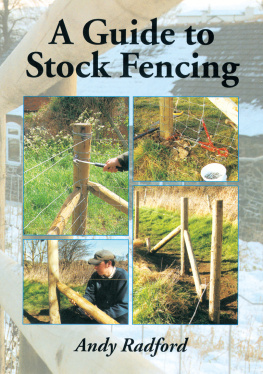Brett Christophers - The new enclosure : the appropriation of public land in neoliberal britain
Here you can read online Brett Christophers - The new enclosure : the appropriation of public land in neoliberal britain full text of the book (entire story) in english for free. Download pdf and epub, get meaning, cover and reviews about this ebook. City: Place of publication not identified, year: 2019, publisher: Verso, genre: Politics. Description of the work, (preface) as well as reviews are available. Best literature library LitArk.com created for fans of good reading and offers a wide selection of genres:
Romance novel
Science fiction
Adventure
Detective
Science
History
Home and family
Prose
Art
Politics
Computer
Non-fiction
Religion
Business
Children
Humor
Choose a favorite category and find really read worthwhile books. Enjoy immersion in the world of imagination, feel the emotions of the characters or learn something new for yourself, make an fascinating discovery.
- Book:The new enclosure : the appropriation of public land in neoliberal britain
- Author:
- Publisher:Verso
- Genre:
- Year:2019
- City:Place of publication not identified
- Rating:3 / 5
- Favourites:Add to favourites
- Your mark:
- 60
- 1
- 2
- 3
- 4
- 5
The new enclosure : the appropriation of public land in neoliberal britain: summary, description and annotation
We offer to read an annotation, description, summary or preface (depends on what the author of the book "The new enclosure : the appropriation of public land in neoliberal britain" wrote himself). If you haven't found the necessary information about the book — write in the comments, we will try to find it.
The new enclosure : the appropriation of public land in neoliberal britain — read online for free the complete book (whole text) full work
Below is the text of the book, divided by pages. System saving the place of the last page read, allows you to conveniently read the book "The new enclosure : the appropriation of public land in neoliberal britain" online for free, without having to search again every time where you left off. Put a bookmark, and you can go to the page where you finished reading at any time.
Font size:
Interval:
Bookmark:

THE NEW ENCLOSURE
The Appropriation of Public Land in Neoliberal Britain
Brett Christophers

First published by Verso 2018
Brett Christophers 2018
All rights reserved
The moral rights of the author have been asserted
1 3 5 7 9 10 8 6 4 2
Verso
UK: 6 Meard Street, London W1F 0EG
US: 20 Jay Street, Suite 1010, Brooklyn, NY 11201
versobooks.com
Verso is the imprint of New Left Books
ISBN-13: 978-1-78663-158-9
ISBN-13: 978-1-78663-161-9 (US EBK)
ISBN-13: 978-1-78663-160-2 (UK EBK)
British Library Cataloguing in Publication Data
A catalogue record for this book is available from the British Library
The Library of Congress Has Cataloged the Hardback Edition as Follows:
Names: Christophers, Brett, 1971- author.
Title: The new enclosure : the appropriation of public land in neoliberal Britain / Brett Christophers.
Description: London ; Brooklyn, NY : Verso, 2018. | Includes index.
Identifiers: LCCN 2018029054| ISBN 9781786631589 | ISBN 9781786631602 (United Kingdom e-book)
Subjects: LCSH: Public lands--Great Britain. | Land tenure--Great Britain. | Public land sales--Great Britain.
Classification: LCC HD596 .C477 2018 | DDC 333.1/30941--dc23
LC record available at https://lccn.loc.gov/2018029054
Typeset in Adobe Garamond Pro by MJ&N Gavan, Truro, Cornwall
Printed in the UK by CPI Group (UK) Ltd, Croydon, CR0 4YY
To Cole Harris, and to the memory of Doreen Massey
Contents
| ASI | Adam Smith Institute |
| BLP | Berwin Leighton Paisner |
| BRB | British Railways Board |
| BTC | British Transport Commission |
| CABE | Commission for Architecture and the Built Environment |
| CPS | Centre for Policy Studies |
| CLT | Community land trust |
| DCLG | Department for Communities and Local Government |
| DEFRA | Department for Environment, Food & Rural Affairs |
| DHSS | Department of Health and Social Security |
| EFA | Education Funding Agency |
| FTE | Full-time employee |
| GLA | Greater London Authority |
| GLC | Greater London Council |
| GPA | Government Property Agency |
| GPU | Government Property Unit |
| GVA | Gross value added |
| HCA | Homes and Communities Agency |
| HDV | Haringey Development Vehicle |
| IEA | Institute of Economic Affairs |
| IFRS | International Financial Reporting Standards |
| IPPR | Institute for Public Policy Research |
| LCC | London City Council |
| LGA | Local Government Association |
| LSA | Land Settlement Association |
| MoD | Ministry of Defence |
| MoJ | Ministry of Justice |
| NAO | National Audit Office |
| NEF | New Economics Foundation |
| NHS | National Health Service |
| OFT | Office of Fair Trading |
| OGC | Office of Government Commerce |
| ONS | Office for National Statistics |
| PACE | Property Advisers to the Civil Estate |
| PLI | Public Land Initiative |
| PRS | Property Repayment Services |
| PSA | Property Services Agency |
| PSC | People with Significant Control register |
| RBS | Royal Bank of Scotland |
| RIFW | Regeneration Investment Fund for Wales |
| RLA | Redundant Lands and Accommodation |
My first and most important thanks are to my family: Agneta, Elliot, Oliver and Emilia. That you have put up with me now for the completion of five books or in Emilias case, four is quite some testament to your love and patience. Over the past four years, I hope that I havent been as hard work for you as researching and writing this one sometimes has been for me.
I am extremely grateful to the team at Verso, including my production editor Mark Martin and copy editor Charles Peyton, for everything that turning out a polished, finished product entails. Versos is always the first catalogue of the book season I turn to, and now to have one of my own books in it feels, genuinely, like an honour. What a stable to be part of! While the work involved in producing this book has been really hard, it has been fun and energizing too. It is relatively easy to retain enthusiasm when you are writing about something that you think is both interesting and important. I cannot guarantee you, the reader, that I have done justice to the material I discuss in the book, but I can guarantee you that the material itself deserves your attention. I have tried, in the final reckoning, to tell a story about the growing disappearance of publicly owned land in Britain since 1979 and it is a story that needed telling, not only because it affects so many people (basically, everyone in Britain) in profound ways, but because the disappearance is ongoing. For recognizing early on the interest and import of the story, and for believing in my ability to pull the book off when I first mooted it to him, I thank my editor at Verso, Sebastian Budgen.
Sebastian was one of five people who read the entire manuscript in draft and who offered invaluable suggestions for its improvement. I hope I have done reasonable justice to these suggestions; needless to say, I alone am responsible for the books claims and for any remaining errors of fact or interpretation. The other four readers are friends and colleagues in the academic world: Madeleine Fairbairn, Anne Haila, Mike Levien and Don Mitchell. I thank all of them for taking time out from hectic schedules to read the text closely, critically and constructively. Each, individually, is formidably knowledgeable about the generic subject matter of this book, which is the political economy of land; and what they do not know about this political economy as a group, well, you could probably fit on the back of a postage stamp. I am very lucky to have been able to lean on them.
I am lucky, too, that the last of these readers Don is also now a colleague at the geography department at Uppsala University. Dons arrival has given a considerable fillip not just to geography in Uppsala, but to critical geography in Sweden more generally. Syracuses loss is very much our gain. In addition to Don, I thank all of my other colleagues in the geography department and in particular, for keeping me on my toes, Stle Holgersen, Gunnar Olsson, David Jansson and the various doctoral students Im fortunate enough to get to supervise.
When I have written books previously, I have tended in writing acknowledgement sections like this one to thank from farther afield only those people who have been actively involved in helping me with the particular book in question. I did not need to mention anyone else because the book had nothing to do with them. Right? With the fullness of time, however, I have come to see how naive and narrow that perspective was. There is a wide group of friends and colleagues around the world who have not yet read a word of this book indeed, who in almost all cases had no idea I was even writing it but whose collective imprint on the ideas animating it, and on the energy and enthusiasm invested in producing it, is now clear for me, at least, to see. Without them, and without the conversations in person, by email and by Skype that we have had over the years, not only would the book look nothing like it does, but nor, I imagine, would I. So, belatedly but absolutely wholeheartedly, I want very much to thank Philip Ashton, Trevor Barnes, Christian Berndt, Patrick Bigger, Tim Blackwell, Marc Boeckler, Bruce Braun, Dick Bryan, Noel Castree, Dan Clayton, David Demeritt, Jessica Dempsey, Desiree Fields, Ben Fine, Shaun French, Chris Gibson, Vinay Gidwani, Sarah Hall, Gill Hart, David Harvey, Stuart Hodkinson, Leigh Johnson, Kelly Kay, Mark Kear, Sarah Knuth, Greta Krippner, Bill Kutz, Mazen Labban, Bob Lake, Paul Langley, Rebecca Lave, Nick Lewis, Andrew Leyshon, Geoff Mann, James McCarthy, Chris Muellerleile, Daniel Mgge, Kathe Newman, Chris Niedt, Phil ONeill, David OSullivan, Shiri Pasternak, Jamie Peck, Jane Pollard, Mary Poovey, Shaina Potts, Scott Prudham, Mike Rafferty, Mary Robertson, Erica Schoenberger, Susanne Soederberg, Matt Sparke, Kendra Strauss, Nik Theodore, Dick Walker, Sophie Webber, Rachel Weber, Marion Werner and Heather Whiteside. From among this large and distinguished group, two people deserve singling out. If I ever have anything interesting to say about the world, it is likely begged, borrowed or stolen from Phil Ashton or Geoff Mann. Perhaps it is just me, or perhaps it is a function of ubiquitous social media, but academia today feels more awash than ever with folk who are big on self-promotion but short on anything valuable to promote. Phil and Geoff are the exact opposite: they have lots of value to say, but they are generally the last people to let you know about it. So here I am to tell you instead.
Font size:
Interval:
Bookmark:
Similar books «The new enclosure : the appropriation of public land in neoliberal britain»
Look at similar books to The new enclosure : the appropriation of public land in neoliberal britain. We have selected literature similar in name and meaning in the hope of providing readers with more options to find new, interesting, not yet read works.
Discussion, reviews of the book The new enclosure : the appropriation of public land in neoliberal britain and just readers' own opinions. Leave your comments, write what you think about the work, its meaning or the main characters. Specify what exactly you liked and what you didn't like, and why you think so.

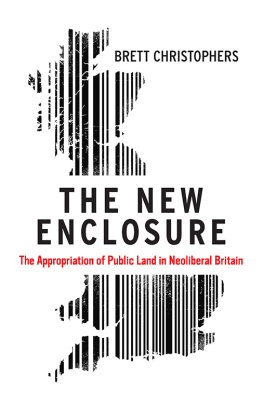

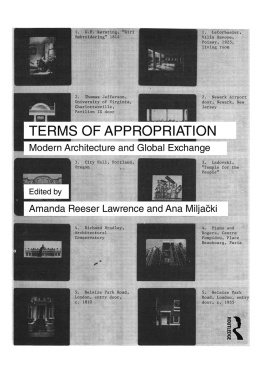
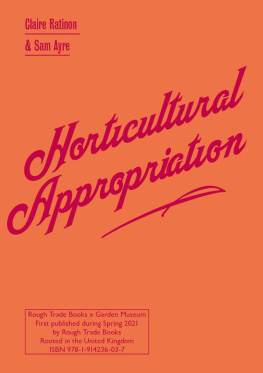
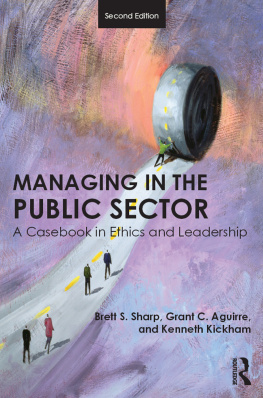
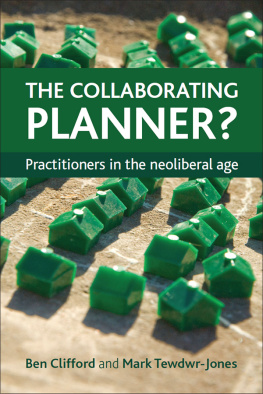
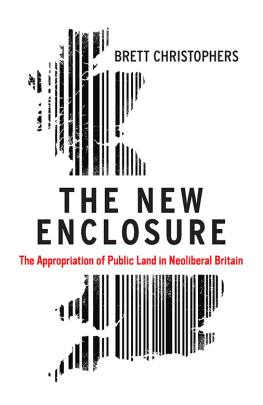

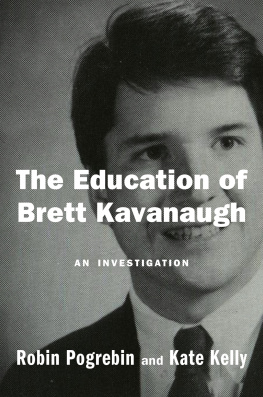
![Simon Brett [Simon Brett] - Mrs. Pargeter’s Point of Honour](/uploads/posts/book/142155/thumbs/simon-brett-simon-brett-mrs-pargeter-s-point.jpg)
![Simon Brett [Simon Brett] - Mrs. Pargeter’s Package](/uploads/posts/book/142153/thumbs/simon-brett-simon-brett-mrs-pargeter-s.jpg)
